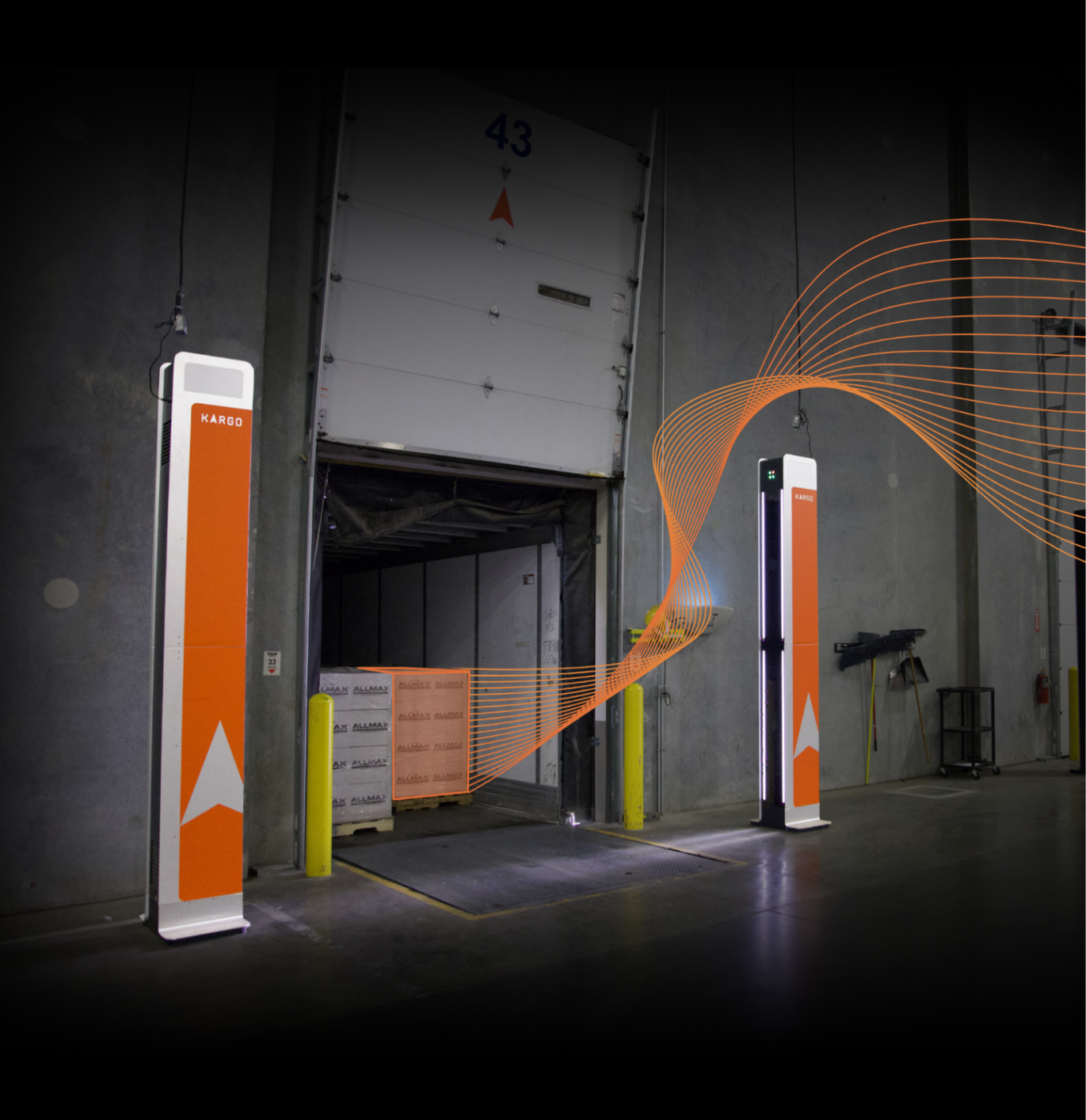Healthcare
Automation Drives New Advantages for Healthcare Supply Chains
| Kargo | 5 min
What You Need to Know



Healthcare supply chains are shifting to automation. It’s a natural evolution of the digital transformations that swept the industry over the past two decades. This time, adoption is happening far more rapidly, accelerating operational efficiencies and earning returns for manufacturers and 3PLs.
The push to automate is twofold: First, regulations mandate advanced recordkeeping, making automated data capture the most cost-efficient way to achieve compliance. Then, market dynamics pressure companies to align with demand as closely as possible without compromising accuracy. The stakes are high, and automation provides the error-free consistency and exception management capabilities that healthcare stakeholders expect.
With Kargo, computer vision towers capture information at loading docks, so that critical inventory data is validated automatically and integrated with your existing recordkeeping systems. Real-time shipment updates, error flagging, and analytics allow you to keep inventory in motion and provide transparent visibility to your customers.
Have questions? Email us at go@mykargo.com
How Kargo Works
Healthcare supply chains achieve better efficiency and accuracy by automating processes at loading docks.
For many supply chains, loading docks present gaps in supply chain visibility. For warehouses, the entry and exit points are crucial to include in end-to-end automation strategies.
With Kargo, computer vision automatically captures shipment information and loading dock activity to create a new source of data that you can use to improve your logistics processes. Freight data elements, barcodes, or other information from labels on pallets are compared against bills of lading to verify shipment accuracy, flag discrepancies, and update inventory in real time.
By expanding common definitions of data to include visuals, Kargo offers contextual understanding of freight and your operations. See pallets as they pass dock doors, track safety violations via AI identification, or discover exactly what happened in the warehouse to resolve a shortage or damage claim.
Healthcare supply chains that don’t have these capabilities are already falling behind. As automation expands, the gap between companies that innovate and those that don’t will only get wider, risking compliance, revenue, and market share.
Computer vision automatically bridges physical and digital logistics, so you can maintain complete accuracy and gather insights to continually optimize your operations.
Automation Streamlines Digital Records
The digitization of logistics data has played a pivotal role in the evolution of regulatory compliance. By leveraging digital systems and solutions, companies can track, trace, and authenticate products. These capabilities both satisfy and drive the stringent requirements imposed by regulatory bodies.
As part of an advanced compliance program, computer vision automates data capture and provides access to image and video verification. Real-time error flagging at loading docks stops discrepancies in their tracks. These features streamline team efforts to detect and prevent mistakes before they become more complex.
With accurate records at the time of palletization, computer vision also greatly simplifies downstream recordkeeping.
Digitizing healthcare shipment data with computer vision lets companies automatically capture a full range of required information, such as lot numbers, expiration dates, and unique identifiers. Complete accuracy enables seamless traceability and verification of product authenticity for pharmaceutical serialization, unique device identification, and other purposes.
Market Forces Demand Agility
Beyond regulations, constantly changing market factors fuel the urgency to automate healthcare supply chains.
As larger population segments age and medical science develops new solutions for all healthcare specialties, demand for care has exploded in recent years and will continue to grow exponentially.
For pharmaceutical and device manufacturers and distributors, including 3PLs, this has led to increased demand for inventory, higher levels of competition among new and diversifying market entrants, and rising costs to serve.
Additionally, the volatility of the last few years may shift, but is unlikely to abate soon. Inflation may eat margins, especially for companies with contractually fixed pricing. Labor shortages strain productivity. Impacts can threaten even robust continuity plans.
For many years, digitization offered a strategic advantage — now, it’s not enough. Automation is the way forward.
Invest End to End for Highest Returns
New technology is transforming healthcare logistics in several ways. In warehouses, robotics may allow autonomous picking, sorting, and replenishment, using advanced sensors and machine learning algorithms. Conveyors and sorting machines streamline movement, reducing handling to expedite fulfillment.
Automation at the loading dock is just as important as investment in the rest of the warehouse - especially because it’s where warehouses connect with trucking and the rest of your supply chain.
Without automation, loading docks can become expensive bottlenecks in an otherwise efficient distribution node.
Loading docks also provide a new source of data, supporting real-time error flagging and deeper insights for continuous improvements.
These capabilities help you reduce costs, optimize inventory, and allocate resources more effectively, ensuring operational agility occurs in lockstep with demand. A closer level of responsiveness positions supply chains for long-term market dominance.
Ultimately, a strategy to automate end-to-end supports optimal return on investment in all technologies.
Automate Loading Docks with Kargo
By embracing automation, healthcare companies can stay ahead of market demands, enhance regulatory compliance, and gain a competitive edge in a rapidly evolving industry. Investing in end-to-end automation ensures the highest returns and positions supply chains for long-term success.
Kargo can help your company capitalize on these advantages by implementing computer vision at your loading docks.
Questions?
Connect With us
Ask us anything or drop your email to stay in touch






